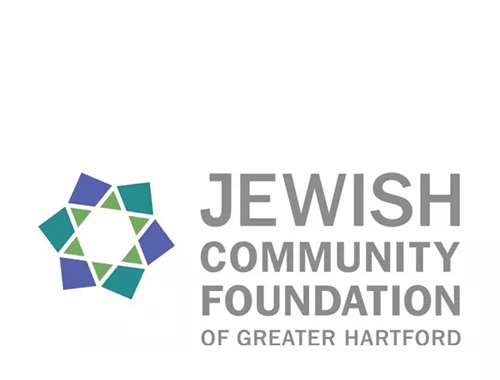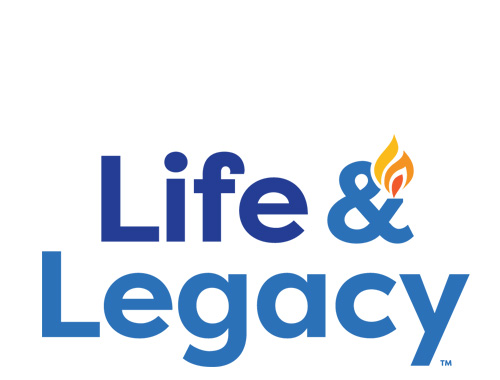Schechter Shavua: November 3, 2023
Schechter Opens Our Doors to Israeli Students
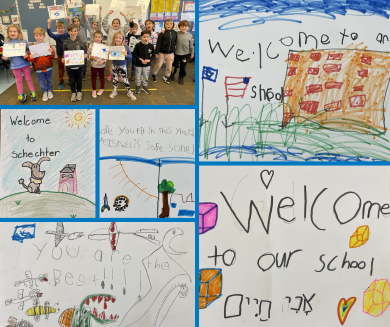 Schechter has welcomed nine Israeli students from four families in the past few weeks! We are doing our best to make them feel at home in this unfamiliar environment. In Anafim (grades 1-2) , where we have three new Israelis, students studied Parashat Vayera and discussed the ways in which Abraham welcomed guests into his tent, then in the spirit of Hakhnasat Orchim (hospitality), they created signs to help their new classmates feel special. In Middle School , students are learning how to play Hatikvah on the piano. With new Israelis in almost each grade, Schechter students are practicing the importance of our Core Values ofK'lal Yisrael (Unity of the Jewish People) and Lev Tov (Good Heart).
Schechter has welcomed nine Israeli students from four families in the past few weeks! We are doing our best to make them feel at home in this unfamiliar environment. In Anafim (grades 1-2) , where we have three new Israelis, students studied Parashat Vayera and discussed the ways in which Abraham welcomed guests into his tent, then in the spirit of Hakhnasat Orchim (hospitality), they created signs to help their new classmates feel special. In Middle School , students are learning how to play Hatikvah on the piano. With new Israelis in almost each grade, Schechter students are practicing the importance of our Core Values ofK'lal Yisrael (Unity of the Jewish People) and Lev Tov (Good Heart).
Kindergarten Turns Trash into Treasure
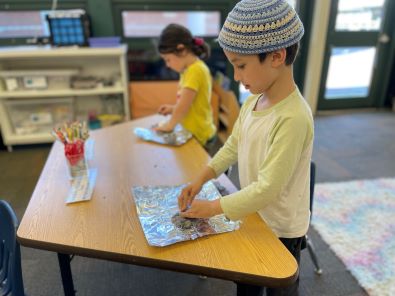 As part of their science unit on plants and animals, Ilanot (Kindergarten) students learned about ways they can be kind to the Earth. They discovered that the best way to help the Earth is to reduce what they use, or they could also reuse materials or recycle them. Students put this lesson into practice by using old, discarded newspapers to create new sheets of paper. The mixture was gooey and slimy, but the students bravely scooped handfuls and scrunched the mixture to make new paper. They were excited to paint on it when it finally dried.
As part of their science unit on plants and animals, Ilanot (Kindergarten) students learned about ways they can be kind to the Earth. They discovered that the best way to help the Earth is to reduce what they use, or they could also reuse materials or recycle them. Students put this lesson into practice by using old, discarded newspapers to create new sheets of paper. The mixture was gooey and slimy, but the students bravely scooped handfuls and scrunched the mixture to make new paper. They were excited to paint on it when it finally dried.
Scorpions Soccer Displays Camaraderie and Skill
 Schechter’s coed soccer season wrapped up last week, leaving the Scorpions with an admirable record of three wins and one loss. The team, composed of students in grades four through eight, was led by captains Avi Kay and Evan Schuyler, both in Perahim/8th grade. The older players were particularly helpful in mentoring our younger players, several of whom had never played on a soccer team. The Scorpions should feel proud of their great effort, sportsmanship, and overall team camaraderie!
Schechter’s coed soccer season wrapped up last week, leaving the Scorpions with an admirable record of three wins and one loss. The team, composed of students in grades four through eight, was led by captains Avi Kay and Evan Schuyler, both in Perahim/8th grade. The older players were particularly helpful in mentoring our younger players, several of whom had never played on a soccer team. The Scorpions should feel proud of their great effort, sportsmanship, and overall team camaraderie!
Season Final Game Displayed Great Teamwork
-- By Noah Cruz, Avi Kay, and Evan Schuyler, Perahim/8th grade
When we, the Schecter Scorpions, took the field and the ref blew the whistle, we started the game by kicking the ball out of the center circle. We passed the ball around and weaved through their defenders; Rami passed the ball to Avi, and Avi passed it to Evan. Evan struck the ball and it just went past the goalie. 1-0 Schecter. Watkinson got the ball, but our defense stole it back and kicked it up to Avi, who kicked it into the top right corner of the goal. It wooshed past the diving goalie. GOAAL!! Schecter was up 2-0 and the ref blew the whistle for halftime. The second half started with a goal by Watkinson. Sammy Weiss made a few diving saves, stopping them from scoring on a corner kick. Sammy Levin made great offensive plays. We scored another two goals and they scored one more. When the ref blew two whistles to end the game, we had won 4-2 and the fans started cheering.
Click HERE for more soccer photos!
Art Studio Expand Both Skills and Growth Mindset
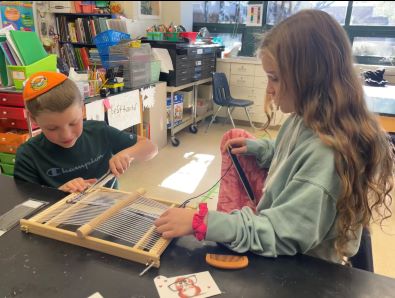 Grades 4-8 students in the art studio are embracing a model of art exploration called “TAB” (Teaching for Artistic Behavior). Supported by the belief that the child is the artist, the TAB model focuses on the creative process rather than the end product. Students are encouraged to create art that they are drawn to; they self-select where they would like to work from four centers (Drawing, Collage, Painting/Clay, and Crafts) and develop their own ideas for creating art. In this open studio space for student-directed art, students benefit from developing creativity through the artistic process, 21st century problem-solving skills, Growth Mindset, and a sense of responsibility that comes from taking care of their studio space.
Grades 4-8 students in the art studio are embracing a model of art exploration called “TAB” (Teaching for Artistic Behavior). Supported by the belief that the child is the artist, the TAB model focuses on the creative process rather than the end product. Students are encouraged to create art that they are drawn to; they self-select where they would like to work from four centers (Drawing, Collage, Painting/Clay, and Crafts) and develop their own ideas for creating art. In this open studio space for student-directed art, students benefit from developing creativity through the artistic process, 21st century problem-solving skills, Growth Mindset, and a sense of responsibility that comes from taking care of their studio space.
Parashat Vayera—Avraham and Yitzhak (Rabin, that is)
 Twenty-eight years ago tomorrow—on Saturday, November 4th, 1995—Israeli Prime Minister Yitzhak Rabin was assassinated. I remember the house in Ann Arbor where I was living, and the friends I was with when we found out what had happened. The assassination and its aftermath had a tremendous impact on my understanding of Israel, the dangers of extremism, and the meaning of seeking peace.
Twenty-eight years ago tomorrow—on Saturday, November 4th, 1995—Israeli Prime Minister Yitzhak Rabin was assassinated. I remember the house in Ann Arbor where I was living, and the friends I was with when we found out what had happened. The assassination and its aftermath had a tremendous impact on my understanding of Israel, the dangers of extremism, and the meaning of seeking peace.
In the Jewish calendar, Rabin’s yahrzeit always falls during the week of Parashat Lekh Lekha or Vayera, so every year, when we commemorate Rabin’s life and death, we are reading a Torah portion about Abraham. This year, the connections between Abraham and Yitzhak Rabin feel especially fraught.
The most prominent connection, perhaps, is that both experienced war and peace. In this week’s parashah, we encounter Abraham as a gracious host to all who approached his tent—but in last week’s reading, when his nephew Lot was taken prisoner in a war, Abraham summoned over 300 armed men to ensure Lot’s safety. Abaham was peaceful, but willing to fight when circumstances demanded it. Yitzhak Rabin fit the same mold; he originally hoped to be an irrigation engineer, but he joined the Haganah to become a soldier because his people and country needed him. He helped lead Israel to triumph in the Six Day War, and beyond—but when he perceived a chance for peace, he did everything he could to seize it. Neither Abraham nor Rabin was bloodthirsty; neither was naively pacifist. Both were men of peace who fought when they had to.
Right now, those qualities speak powerfully to me, because at this moment, I believe that Israel needs to fight. After the horrible attacks of October 7, Israel has to try to eliminate the threat of Hamas once and for all, and assure Israelis that their country can protect them. The cost of life in Gaza is horrible, and must be acknowledged, but I don’t see any way of avoiding it because Hamas will not negotiate or abandon its mission of murdering Jews.
But it’s also clear to me that even if this war accomplishes those goals—even if every Hamas fighter and leader is killed, and every hostage returns home safely—it will not on its own lead to peace. Right now, we need war leaders; at some point, we will need courageous, wise leaders for peace.
Right now, this is hard to imagine. Peace will require an equally courageous partner for peace on the Palestinian side; at the moment, to our knowledge, there is no such partner. It feels harder than ever to imagine anything beyond the current war.
Ultimately, though, what Abraham and Rabin shared was not just the ability to fight, or a desire for peace; it was a belief. Neither accepted that their world was irredeemable. One imagined a new way of understanding God; the other imagined that an enemy could become a partner. Like Moses, neither got to see their dream fully realized, but both left the world better off than they found it.
Right now, I pray for Israel’s soldiers to triumph, and for the hostages to be found, and for all to make it home safely. I hope that soon, I can pray for a just, enduring peace.
Shabbat shalom,
Rabbi Jonathan Berger
Head of School
Solomon Schechter Day School
of Greater Hartford
26 Buena Vista Road
West Hartford, CT 06107
© Solomon Schechter Day School of Greater Hartford | Site design Knowles Kreative

